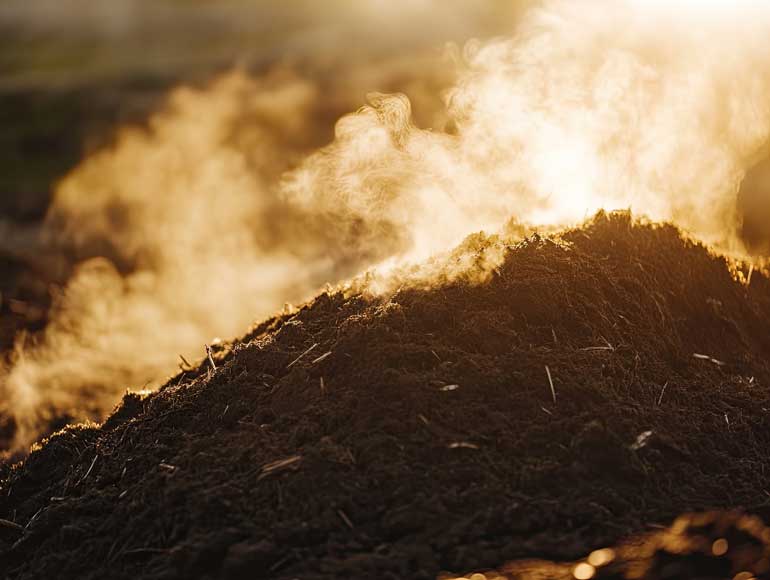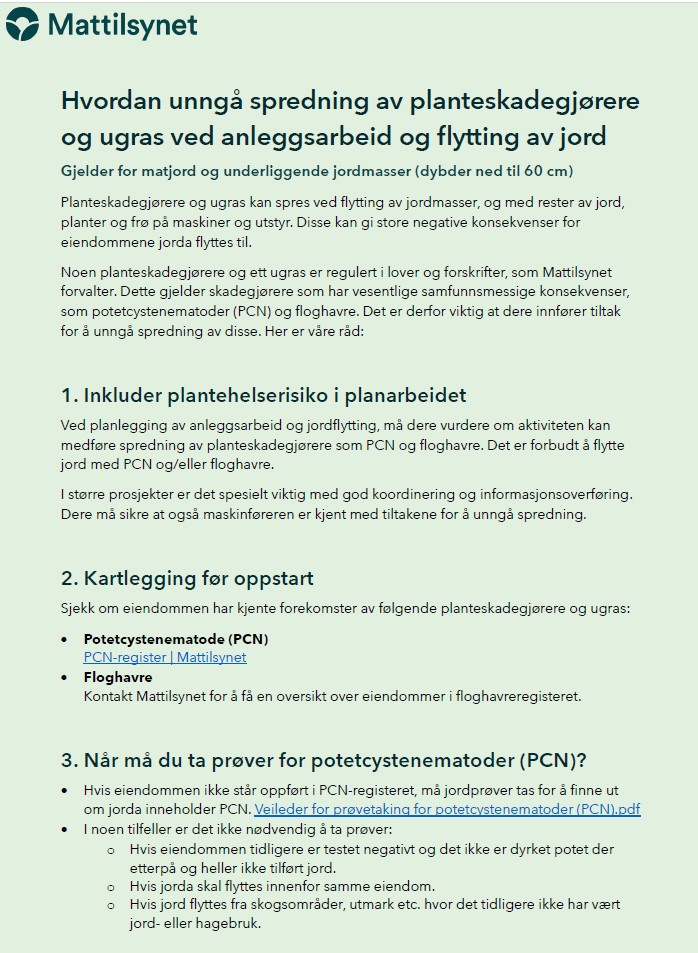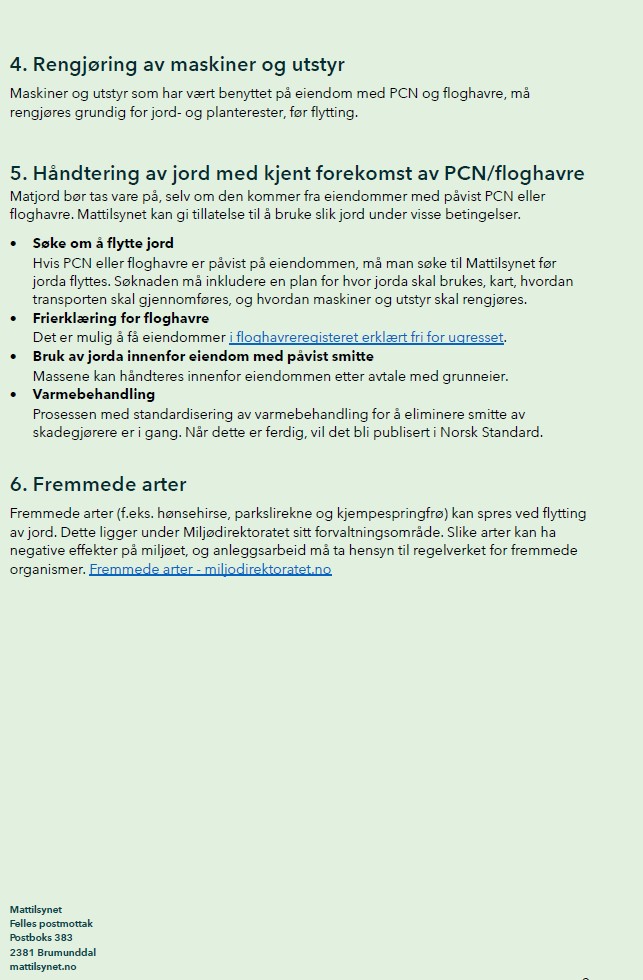Norwegian Authorities Opens for Steam Treatment to Enable Sustainable Reuse of Soil
In an era where climate change and resource management are high on the agenda, Norwegian authorities are taking a significant step to promote sustainable solutions in agriculture and construction. The Norwegian Food Safety Authority (Mattilsynet) has recently announced that heat treatment of soil may become a standardized method for eliminating plant pests like potato cyst nematodes (PCN) and wild oats, as well as invasive alien species. This opens the door for the reuse of soil that was previously deemed unsuitable.

Why Steam Treatment?
When soil is moved during construction or agricultural projects, it can carry harmful organisms that spread to new areas. Traditionally, this has led to strict restrictions, including prohibitions on relocating contaminated soil. Now, heat treatment is considered a solution that ensures soil quality while protecting the environment from the spread of unwanted species.
Soil heat treatment involves heating the material to temperatures that kill seeds, plant pests, and microorganisms. This process, which is expected to become part of the Norwegian Standards framework, can potentially revolutionize the handling of problematic soil in Norway.


Picture: Norwegian authoroties have now opened up to recycle biological contaminated soil after heat/steam treatment.
Benefits for the Environment and Society
This initiative represents a win-win situation for both the environment and society:
- Waste Reduction: Instead of disposing of contaminated soil, it can be cleaned and reused.
- Preservation of Topsoil: Soil is a valuable resource, and reuse contributes to sustainable resource management.
- Prevention of Environmental Damage: Heat treatment prevents the spread of harmful species that can threaten biodiversity and agricultural productivity.
The Way Forward
For this method to succeed, collaboration between public agencies, contractors, and technology developers is crucial. The Norwegian Food Safety Authority highlights the importance of planning and thorough mapping before project initiation, as well as the need for permits when moving contaminated soil.
This is encouraging news for stakeholders in construction and agriculture, demonstrating that Norway is taking concrete steps to address future challenges sustainably. Heat treatment of soil could become an example for other countries seeking to combine environmental protection with efficient resource use.
We now look forward to the implementation of a Norwegian Standard for soil heat treatment – a vital step towards a greener future!